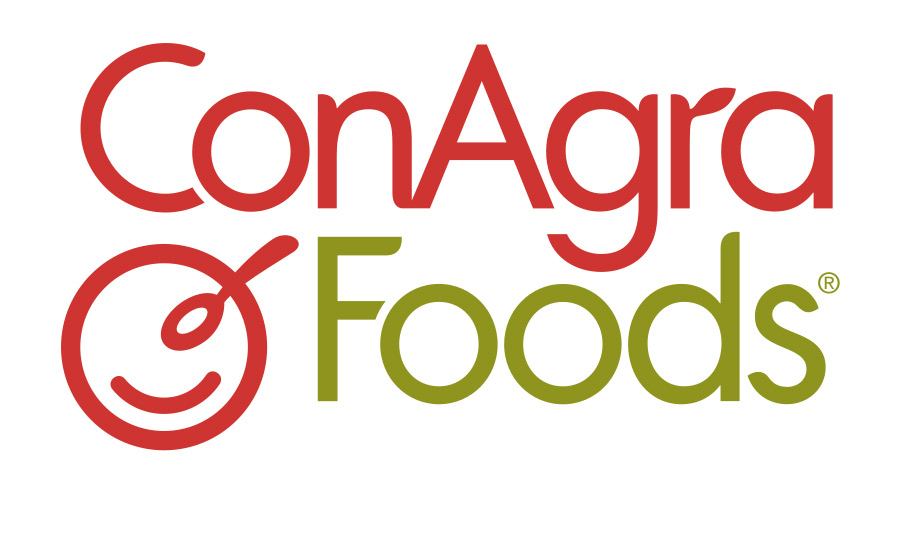ConAgra Foods, Inc.reported results for the fiscal 2015 fourth quarter ended May 31, 2015. Highlights:
Diluted EPS from continuing operations of $0.47 per share as reported, vs. a loss of $(0.95) a year ago. After adjusting for items impacting comparability, diluted EPS of $0.59 this quarter was ahead of $0.55 a year ago, as expected. An extra week in the fourth quarter of fiscal 2015 favorably impacted current-quarter amounts.
Consumer Foods and Commercial Foods posted operating profit growth after adjusting for items impacting comparability, and including the benefit of the extra week.
Private Brands posted an operating profit decline after adjusting for items impacting comparability, and including the benefit of the extra week.
The company repaid approximately $1.1 billion of debt in fiscal 2015, resulting in cumulative debt reduction of approximately $2.1 billion since the completion of the Ralcorp transaction, which exceeded the $2.0 billion goal.
The company plans to exit the Private Brands operations.
The company’s new plans for creating long-term value center on a more aggressive approach to cost reduction, growing consumer brands (Consumer Foods segment) and Lamb Weston (within the Commercial Foods segment), as well as balanced capital allocation. Details to be shared at an investor event later this year.
Overall Quarterly Results
For the fiscal 2015 fourth quarter ended May 31, 2015, diluted earnings per share from continuing operations were $0.47, vs. a diluted loss per share of $(0.95) as reported for the fiscal 2014 fourth quarter. After adjusting for items impacting comparability, comparable diluted EPS was $0.59 this quarter and $0.55 in the year-ago period. Items impacting comparability are summarized toward the end of this release and reconciled for Regulation G purposes starting on page 11.
Consumer Foods Segment
Branded food items sold worldwide in retail channels.
The Consumer Foods segment posted sales of approximately $1.9 billion and operating profit of $304 million, as reported. Including the benefit of the extra week, sales increased 4% as reported (rounded), with volume up 5%, 1% favorable impact from price/mix, and 1% unfavorable impact of foreign exchange. The company estimates that the extra week favorably impacted sales and volume by approximately 7% for the quarter. The company increased prices in some categories to cover commodity costs, and continues to make progress with efficiencies in trade spending.
After adjusting for the benefit of the extra week, brands posting sales growth for the quarter include ACT II, Hunt’s, Ro*Tel, DAVID, Reddi-wip, Slim Jim, PAM, PF Chang’s, and Wolf.
The company continues to make good progress in fast growing channels including club, dollar, and convenience.
Other brand details are in the written Q&A document accompanying this release.
Operating profit of $304 million was significantly above $176 million a year-ago as reported. After adjusting for $15 million of net expense in the current quarter and $91 million of net expense in the year-ago period from items impacting comparability, and including the benefit of the extra week, current quarter operating profit of $319 million increased 20% over comparable year-ago amounts. In addition to the benefit of the extra week, the comparable operating profit growth reflects productivity which more than offset higher protein and packaging costs, favorable mix, and the benefit of pricing and trade spend efficiencies. Strong operating margins enabled a $7 million increase in advertising and promotion expense (an increase of 13%), and offset approximately $14 million unfavorable impact of foreign exchange.
Commercial Foods Segment
Specialty potato, seasonings, blends, flavors, and bakery products, as well as consumer branded and private branded packaged food items, sold to restaurants, foodservice and commercial channels worldwide.
Sales for the Commercial Foods segment were $1.2 billion and operating profit was $154 million, as reported, ahead of prior year amounts. The company estimates that the extra week favorably impacted sales and volume by approximately 7%. Sales for Lamb Weston’s potato operations grew, although international sales were impacted by the West Coast port labor dispute as well as challenges facing quick-serve customers in key Asian markets. The West Coast port dispute was settled in late February 2015, and Lamb Weston’s international shipments have been gradually improving; the company expects to reach normal shipment levels in the first half of fiscal 2016. Sales for the rest of the segment grew.
After adjusting for items impacting comparability, current quarter operating profit increased 3%, reflecting the benefit of the extra week. Lamb Weston comparable profits grew modestly, largely reflecting good domestic performance and efficiencies from good raw potato crop quality. Profits for the rest of the businesses in the segment grew modestly.
Report: ConAgra Foods Fourth-Quarter
EPS grows as planned; new strategic direction; exiting private label
